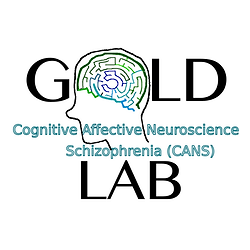
13 Dec Postdoctoral – Cognitive Neuroscience of Schizophrenia
CAREERS
Join Gold CANS Lab
POST-DOCTORAL FELLOW
We are excited to announce that MPRC’s T32-Institutional Training Grant has been renewed! Our lab is accepting applications for a MPRC T32 postdoc position beginning Spring 2022. This will be co-mentored by Dr. Jim Gold and Dr. Sonia Bansal.
We are particularly interested in characterizing abnormal sensorimotor and perceptual processes and understanding their relationship to clinical symptoms. Current projects focus on visual perception, eye movements and electrophysiological assays (EEG) of sensory predictive mechanisms. This position would be suitable for individuals with a clinical background or a background in cognitive neuroscience and/or EEG research. The laboratory is located within the Maryland Psychiatric Research Center (part of UMSOM’s Department of Psychiatry) which provides an excellent research and training environment.
The postdoctoral fellow will have the opportunity to contribute to ongoing projects as well as to develop independent experiments within the broader aims of the lab. The research involves investigation of two prevalent frameworks (predictive coding and corollary discharge/efference copy) used to explain perceptual disturbances (e.g. hallucinations and delusions) in schizophrenia.
For current projects, data collection is underway, but the candidate will have the opportunity to participate in study design and data acquisition as well.
Current projects include:
- Corollary discharge function in schizophrenia: Psychotic symptoms in schizophrenia (such as delusions, hallucinations, etc) reflect disturbances in sensory perception—difficulty discriminating internally from externally generated percepts and an impaired sense of agency (SoA). One theory suggests that these perceptual aberrances may be due to disruption in corollary discharge (CD) mechanism, which is used in the prediction of future states and sensory consequences of impending movement, allowing for distinction of sensory information that results from self-generated action. This study uses tasks in the visual system and the auditory systems to assess behavioral and neural disruptions associated with SoA-related perceptual disturbances.
- Predictive coding as a framework for understanding psychosis: Another compelling theory of psychosis is the predictive coding (PC), which is explained as a Bayesian inference model: the brain uses a hierarchy for prediction generation and response to stimuli. Humans hold expectations about how the world is experienced based on past experiences (i.e., priors). According to this model, symptoms like hallucinations may arise from strong priors, overweighting past experiences to create sensory material that does not actually exist externally. In this R01-funded project, we use EEG and behavioral testing to examine whether inappropriately strong top-down perceptual priors cause hallucinations, testing if delusions are caused by aberrant prediction error signaling and examining whether psychotic symptoms result from a failure to attribute outcomes to one’s own actions appropriately.
- Cognitive Neuroscience of Attention and Working Memory: This RO1 has supported a long term collaboration between the lab of Steve Luck at UC Davis and Jim Gold, Sonia Bansal, and Britta Hahn at MPRC. The work includes both behavioral, eye tracking, fMRI, and ERP methods with the goal of understanding the origins of, an interaction between, attentional and working memory impairments. Current experiments are designed to test the “hyperfocusing hypothesis” that we have advanced to explain abnormalities in both attentional processes and working memory capacity limits. We are also actively investigating the impact of prior experience (ie., prior trials) on the accuracy of working memory performance.
In addition, the candidate will be part of the T32 cohort at MPRC and will have didactic coursework and various other training opportunities outside the GoldCANSLab.
Requirements for this position include:
- a Ph.D. in clinical or cognitive psychology, neuroscience, or a related field.
- Applicants should have a strong statistical, data management and analysis skills including Programming skills (Matlab or Python),
- Experience with EEG is highly desired.
- The ideal candidate will have good interpersonal and communication skills, the ability to work independently, and experience conducting research with clinical populations (although this is not required).
We strongly believe that many of the greatest ideas and discoveries come from a diverse mix of minds, backgrounds, and experiences. Diversity drives innovation- we are continually working to build a culture where difference is valued and your unique contributions are encouraged. As such, we strongly encourage applications from those individuals who identify as members of marginalized or historically disadvantaged groups.
Interested applicants should fill out the following form: MPRC T32 Application: GoldCANSLab
If unable to fill the form, please contact Dr. Sonia Bansal at sbansal@som.umaryland.edu.
Applications will be reviewed starting immediately and continue until the position is filled.
Any questions about the position may be directed to Dr. Sonia Bansal at sbansal@som.umaryland.edu or Dr. Jim Gold at jgold@sum.umaryland.edu.
Please click here to learn more.


Sorry, the comment form is closed at this time.